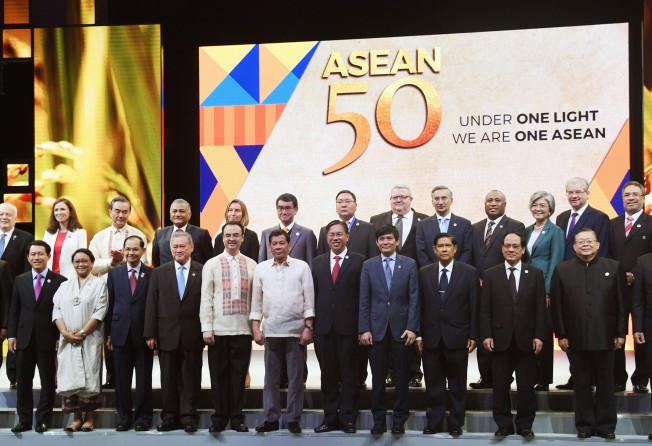Give and take needed to reach consensus on South China Sea disputes
Some progress towards stability has been made by claimants to the disputed waters but Vietnam, in particular, can do more to seek a peaceful resolution

Territorial disputes such as those in the South China Sea involving China and four Southeast Asian countries can only be dealt with through reasoned, rational, discussion. Passions and the interference of outside governments have often got in the way of negotiations; it is why the issue has been dragging on. Surprisingly, then, the Association of Southeast Asian Nations’ meeting of foreign ministers in Manila was marked not by the acrimony of recent years, but by the consensus that the grouping is better known for. The outcome is a reassuring sign that differences can be amicably handled and an agreement reached to permanently calm the too-often turbulent waters.
A final deal is some way off, but the signing of an agreement between China and Asean for a framework for a code of conduct is a positive development. That it is not legally binding is a disappointment for Vietnam, which has taken a tougher line than Brunei, Malaysia and the Philippines. Fifteen years have passed since the declaration to strive for an agreement, showing the latest decision is only a small step. Yet with eyes on discussion to ensure regional stability, the intent is welcome after disputes over fishing, oil and gas exploitation and the construction of islands and military infrastructure.
Japan, the United States and Australia seem to want it otherwise. They issued a joint statement calling for an end to land reclamation and military action and compliance with an international arbitration panel that last year ruled against most of China’s claims. Beijing has rejected the court’s ruling and Manila, which brought the case, has also set it aside in favour of bilateral talks, joint exploitation of resources and investment. The lack of such open rhetoric among the Southeast Asian foreign ministers at their annual gathering shows a desire to put the matter aside so that negotiations can move positively forward. They have the bitter lesson of 2012, when they were unable to agree on a final communique. This year, though, the South China Sea was less an issue for the region to worry about than the threats posed by North Korea’s weapons. Still, Vietnam insisted on ensuring that concerns over the contested waters be reflected. That led to a delay in the release of the document, but Asean pragmatism shone through, with concern expressed about activities in the waters, although no mention of a particular country.
Foreign Minister Wang Yi noted during the Asean Regional Forum that circumstances over the South China Sea had “stabilised remarkably”. Vietnam should follow the Philippines’ lead and seek a peaceful resolution to its claims. Dialogue aimed at seeking common ground makes the most sense.